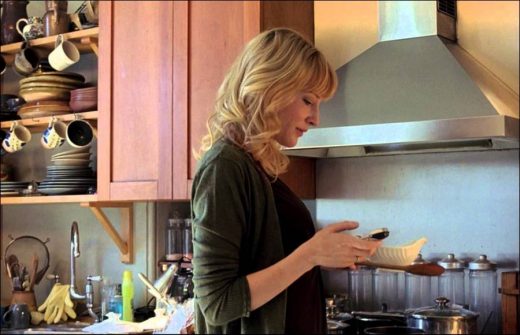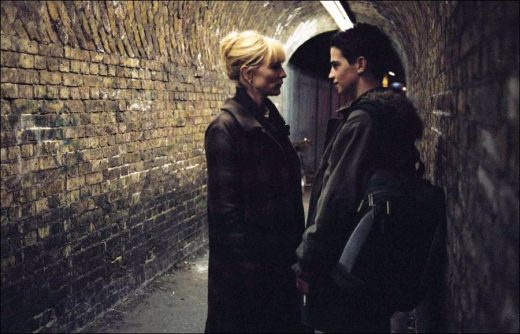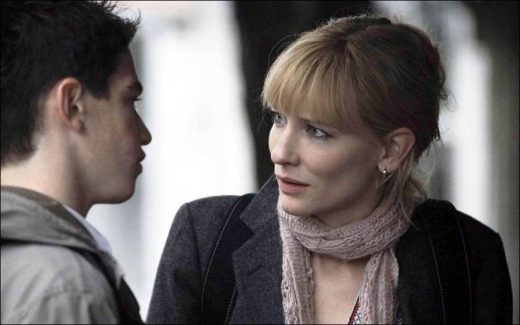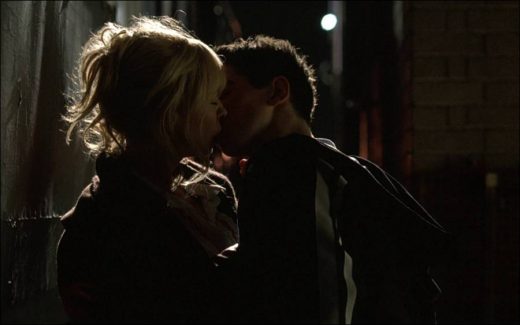Notes on a Scandal. Barbara Covett (Judi Dench), who is known as an iron fist in a secondary school in London, draws attention with her disciplined and hermit personality, is a lonely woman who has not a single friend close to her for many years. Except for his cat, Portia, he has no one with Barbara. However, her life changes with the presence of Sheba Hart (Cate Blanchett), an art teacher who is new to her school.
Sheba is the warm and kind friend Barbara has been waiting for years. But as he gets closer to him, he will shake the relationships they have learned. Sheba has a love affair with one of her students. Barbara will threaten Sheba’s secret to telling her husband and change the course of his life. Everyone has a secret, so is Barbara… And the secrets are the intersection of the lives of two women.
Adapted to the cinema from Zoe Heller’s novel What Was She Thinking: Notes On A Scandal, it is like a taxpayer table appetizing in many ways. If we act on the back of the knife that he has dealt with first, there is a complicated movie to watch as a family, even though he processes the delicate balances of the family institution and friendship. The film, which we occasionally encounter in the press and who has sex with the student, has a strong body that questions young-old, male-female, teacher-student values in the axis of this forbidden relationship.
Sheba, who is in love affair with her 15-year-old student, is mysterious, mysterious, married, mother of two children, one of Down Syndrome. Even though Barbara witnesses the lives of Sheba’s family, which she finds boring, never fits her own style, she does not lose interest in Sheba. One day, by chance, when she saw Sheba with her student in an inappropriate situation, she should report the situation to the school, and she goes directly to Sheba.
When Sheba has no valid reason, Barbara asks him not to repeat it. And friendship continues where it left off with this secret. So far, in line with our personal value judgments, we have determined our side through good woman-bad woman profiles, but the events that followed, bring us to the chain of humanitarian contradictions and take us between Sheba and Barbara. Just a few of the many rings of this chain, when Sheba’s struggle with the promise of his passions, Barbara, who had a nervous breakdown when her only cat died, punished Sheba, who could not share this pain for justifiable reasons.
When human beings are among their needs and responsibilities, confrontation is inevitable. Although we cannot put some of what we see as a need on moral grounds, this does not change the human excuse of that need. In this respect, the reasons for our pain to understand Sheba’s need are completely moral. But the film underlines our ability to ignore humanistic reflexes with sin and good sin. Instead of being good or bad, he emphasizes being weak. Moreover, he does this with two characters, Barbara and Sheba, who bring the normality of their weakness to an immoral level.

How much human characteristics do moral values reflect from society to society or from person to person? It is not the cost of every scenario to be able to emphasize this with critical corner stones. Including Patrick Marber’s Best Adapted Screenplay Oscar nomination, many nominations and award-winning scenarios have excellent functioning, brilliant interventions, and character analysis that reinforce adaptation to the story.
Editing of such films may create problems from time to time and may cause different blockages than desired. Whereas, synchronization in Notes On A Scandal does not create congestion, it opens the way for even the parts that are likely to become clogged. Maybe we can deduce this from the head-sound depictions we hear best of what Barbara wrote in her diary. This scenario is a scenario between the poetry and reality in these depictions, which has made the analysis of obsessive, troubled, uncanny identities he has uploaded to a Sheba, a Barbara, and what we can perceive from the atmosphere created by the novel is different. However, this beautiful adaptation that does not betray its own scale deserves praise.
Notes On A Scandal is also a magnificent body show of two master actresses from two different generations. It is not known whether the duo Judi Dench-Cate Blanchett, who presented Sheba and Barbara first, then developed them, transformed them towards the end, and had a great chemistry with sorrow, tension and anger intensity. But this show should not be missed.
Presenting the friendship and dangerous shooting between Barbara and Sheba only through a screenplay can feel a bit lacking. However, both players can overcome these shortcomings with their low-rising performance. Master English actor Bill Nighy also strengthens his mediocre role towards the end, with some exaggeration. (After what happened to Sheba’s husband, Richard, this exaggeration is also unobtrusive.)
First-class acting, a bloody live script, a strong story, a bold narrative, did not put too much burden on director Richard Eyre. Passionate music of the master of soundtrack Philip Glass perfectly complements the tension of the movie going up and down. Notes On A Scandal is a great opportunity for audiences who love quality drama.
All about Notes on a Scandal movie.
Notes on a Scandal (2006)
Directed by: Richard Eyre
Starring: Cate Blanchett, Judi Dench, Bill Nighy, Andrew Simpson, Phil Davis, Michael Malonay, Juno Temple, Joanna Scanlan, Emma Kennedy, Wendy Nottingham, Tameka Empson
Screenplay by: Patrick Marber
Production Design by: Tim Hatley
Cinematography by: Chris Menges
Film Editing by: John Bloom, Antonia Van Drimmelen
Costume Design by: Tim Hatley
Set Decoration by: Caroline Smith
Art Direction by: Hannah Moseley, Mark Raggett
Music by: Philip Glass
MPAA Rating: R for language and some aberrant sexual content.
Distributed by: Fox Searchlight Pictures
Release Date: December 25, 2006
Views: 1791






